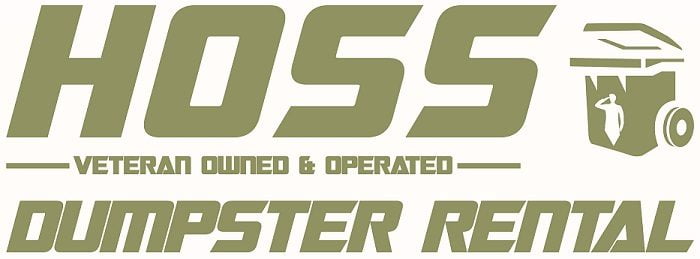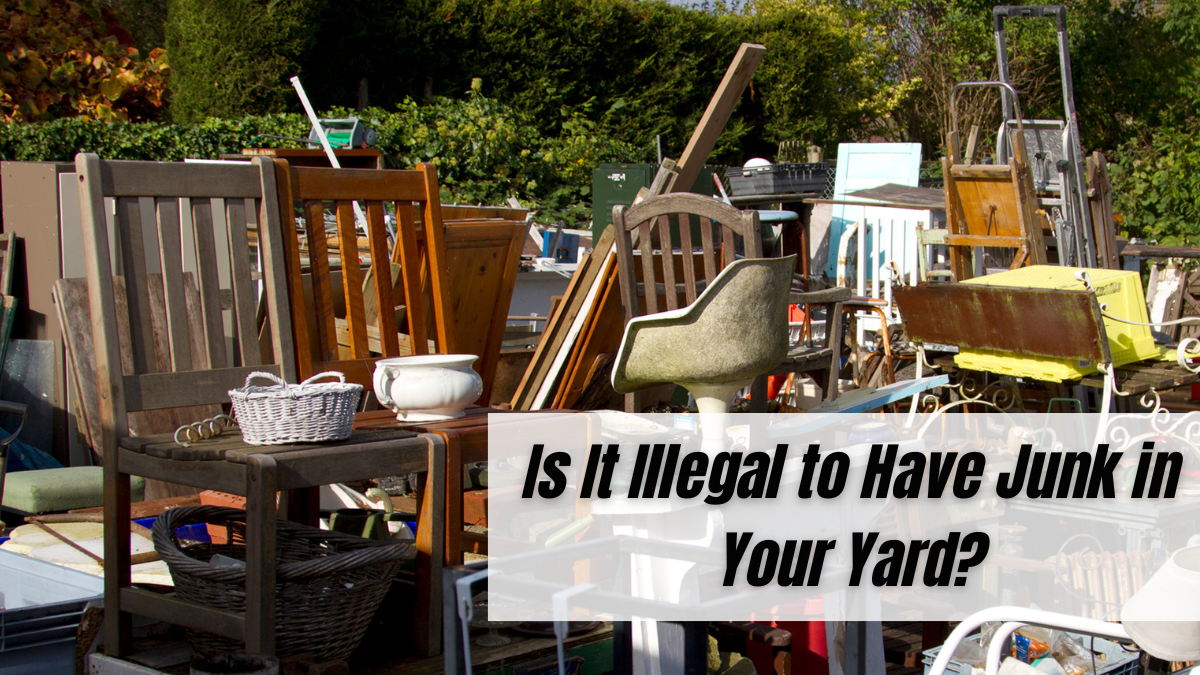Is It Illegal to Have Junk in Your Yard?
Is It Illegal to Have Junk in Your Yard?
As a homeowner, it’s easy for clutter to accumulate over time—whether it’s old furniture, discarded appliances, or unused vehicles. However, when these items pile up, they can quickly become more than just an eyesore. You might start to wonder: Is it illegal to have junk in your yard? While it might seem like a harmless personal choice, keeping junk in your yard could lead to legal issues, fines, and even disputes with neighbors or local authorities. In this blog, we’ll explore the legality of keeping junk in your yard, how local regulations play a role, and what you can do to avoid potential problems.
Defining “Junk” in Legal Terms
Before delving into the potential legal ramifications, it’s important to clarify what constitutes “junk” in a legal sense. Junk typically refers to items that are broken, outdated, or no longer serve a useful purpose. This can include anything from old furniture, discarded electronics, tires, scrap metal, or even vehicles that are no longer roadworthy. The definition can vary by region, but local ordinances usually focus on whether the items are creating an eyesore, health risk, or safety hazard.
Local Ordinances and Zoning Laws
In most cities and towns, there are local ordinances and zoning laws that govern how residents are allowed to use their property. These laws are typically enforced by local municipal or county governments, and they can address everything from the appearance of a property to public safety concerns. Many communities have regulations that specifically address the storage of junk in residential yards, and these rules are designed to maintain the aesthetic integrity of neighborhoods and prevent health or safety hazards.
1. Nuisance Ordinances
One of the most common ways that junk in your yard can become illegal is through nuisance ordinances. Nuisance laws are designed to protect the public from conditions that may cause harm, disturbance, or discomfort to others. An accumulation of junk in your yard may be considered a public nuisance if it:
-
Creates an unsightly or unsanitary environment.
-
Attracts pests or vermin (such as rats or mosquitoes).
-
Presents a fire hazard.
-
Causes an obstruction or hazard to pedestrians or vehicles.
If your property is deemed a nuisance, you may be subject to fines, orders to clean up the area, or even legal action. It’s important to note that nuisance laws can apply to both the interior and exterior of your property, a location on the property with your vehicle, meaning that even if the junk is contained in your yard, it can still be subject to regulation.
2. Zoning and Property Use Codes
Zoning laws are another tool that local governments use to control land use in specific areas. Most residential zones have guidelines about what can and cannot be stored or left in plain view in a yard. Zoning codes often focus on maintaining the overall appearance and safety of residential neighborhoods. If your yard is cluttered with junk that violates local zoning codes, you could be ordered to remove it or face penalties.
Some zoning codes even limit how many vehicles, trailers, or other large items can be parked or stored on residential property. For example, you may not be allowed to park a broken-down car on your front lawn for extended periods, especially if it is visible from the street.
3. HOA Regulations
In some communities, homeowners associations (HOAs) have additional rules and regulations regarding the appearance of properties. These rules are more strict than local ordinances in many cases and can include specific guidelines for keeping yards clean and free of debris. If you live in a neighborhood governed by an HOA, it’s important to review the association’s guidelines to ensure that you’re not violating any rules.
HOAs may issue fines for violating these rules or require you to remove junk from your yard. In extreme cases, they may even take legal action to compel you to comply.
Health and Safety Concerns
In addition to aesthetic concerns, junk in your yard can pose serious health and safety risks. Items like old tires, abandoned vehicles, or broken appliances can collect rainwater and create breeding grounds for mosquitoes, which can carry diseases such as West Nile virus or Zika. Similarly, junk piles can attract rodents, raccoons, and other pests that may pose a health risk to you and your family.
Additionally, large piles of junk can obstruct walkways, driveways, or emergency exit routes. This could be dangerous in the event of an emergency, such as a fire or medical situation. Furthermore, sharp objects or hazardous materials may pose a risk to children or pets who may be playing in the yard.
Local authorities, fire departments, or health departments may inspect properties that are reported to have junk that presents a hazard. In some cases, they may issue orders to clean up or face fines.
Can Junk in Your Backyard Lead to Legal Action?
While it is generally rare for junk in your yard to lead to criminal charges, it can result in civil actions, fines, or orders to clean up. In most cases, a property owner will first receive a notice from the local government or a neighbor informing them of the violation. If the problem is not addressed within a certain time frame, fines can be levied, and further legal actions may be taken.
If you fail to comply with a cleanup order, the local government may even send contractors to remove the junk from your yard at your expense. In extreme cases, if the junk is deemed hazardous, authorities may seize it or take further legal action to protect public health and safety.
How to Avoid Legal Issues With the City
To avoid potential legal issues related to junk in your yard, here are some steps you can take:
-
Regularly Clean Up Your Yard – Regularly inspect your yard and house for items that may be accumulating and take steps to dispose of them responsibly. If something is no longer useful, it’s better to get rid of it before it becomes a bigger problem.
-
Dispose of Junk Properly – Many communities offer bulk waste pickup services or recycling programs where you can safely dispose of large items. Alternatively, you can hire a junk removal service to clear your yard of unwanted items.
-
Know Your Local Laws – Familiarize yourself with your city’s zoning ordinances, nuisance laws, and HOA rules to ensure you are in compliance with local regulations.
-
Work with Your Neighbors – If you have a lot of junk and don’t have the resources to get rid of it, consider talking to your neighbors. They may be willing to work with you on a solution or help cover the costs of removal.
Conclusion
While it may not always be outright illegal to have junk in your yard, it can certainly lead to legal problems if it violates local ordinances, the city law, creates health or safety risks, or becomes a nuisance to others. To avoid fines, legal action, or disputes with neighbors, it’s important to stay on top of yard maintenance and dispose of unwanted items properly. By following local laws and keeping your property clean, you can ensure that your yard remains a safe and attractive space for you and your community.
If you find yourself with too much junk in your yard and need help removing it, Hoss Junk is here to assist! We offer professional junk removal services to help you clean up your yard quickly and efficiently, so you can avoid any legal headaches and enjoy a clutter-free space.

